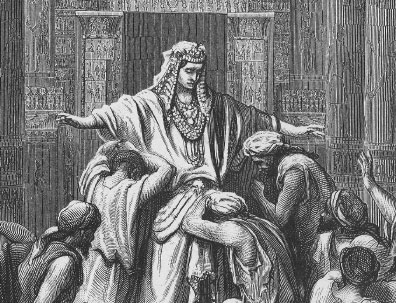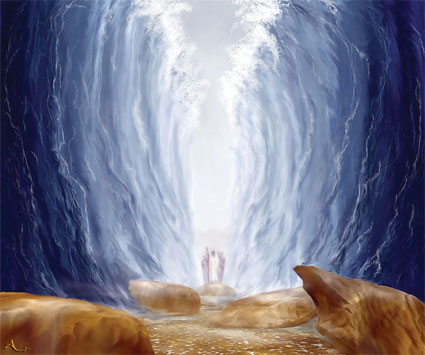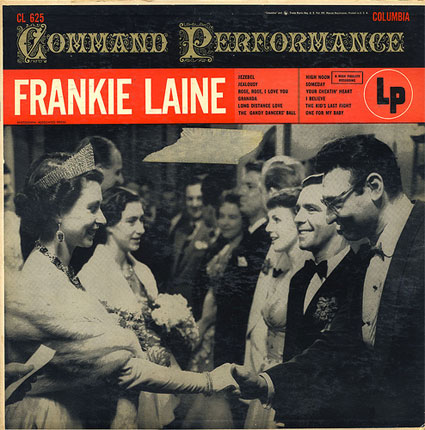Nov
30
2009
Doug Wilson on Twilight:
Let me take this opportunity to point out the theological logic of this whole sorry business, offered as yet another reason why Christians ought to be having nothing whatever to do with this, as I say, sorry business. After all, what sense does it make to say, “Yes, well, I know the writing is terrible, but at least it has lots of Mormon weirdness!”
So there is something of a spoiler here, so if it is your policy to avoid spoilers, then stop reading now. At the end of the series, Bella does get it in the neck, so to speak. She gets vampirized, although I don’t exactly know how, having no intention myself of reading that far. Why does that matter?
Continue reading
Comments Off | tags: Culture, Doug Wilson, Genesis | posted in Biblical Theology, Quotes
Nov
26
2009

.
“The liberal says the end of religion is to make man happy while he’s alive, and the fundamentalist says the end of religion is to make man happy when he dies.”
“…the reason for you to go to the cross isn’t what you’re going to get out of it, but what He’ll get out of it…”
— Paris Reidhead, Ten Shekels and a Shirt.
Comments Off | tags: Paris Reidhead | posted in Quotes
Nov
26
2009

Warren Gage/Christopher Barber and then James Jordan on Joseph’s wisdom:
“How strange Joseph’s behaviour toward his brothers appears to a modern reader! He recognises his brothers immediately but maintains his Egyptian disguise. He speaks harshly to them and then only through an interpreter. He charges them with spying — a capital crime for which he can sentence them to death. He takes one brother as a hostage. He returns their silver as they go home for the first time, and then he sets the brothers up in order to accuse them of stealing his silver cup on their second return trip, at which point he has them arrested. In short, he terrifies them.
What does this all mean? Is Joseph seeking revenge? Clearly that is not the case, for he so loves them he can hardly restrain himself fom revealing his identity — and his forgiveness — to them. Surely he is not vengeful. Why does he act this way? And why does the text go to such lengths to describe all of this?
Continue reading
Comments Off | tags: Dominion Theology, Forgiveness, Genesis, Jacob, James Jordan, Joseph, Warren Gage, Wisdom | posted in Biblical Theology, Christian Life, Quotes
Nov
24
2009

There was a discussion of purgatory on the BH list. Someone summarised it as follows: [1]
“Or, perhaps, with Peter Kreeft, one might interpret purgatorial cleansing as a form of heightened and perfected awareness, effected by the light of God’s presence as an illuminating and purifying fire. Thus, in death, in coming face-to-face with God, we finally see ourselves as we truly are, the depths of our own sin and brokenness, and all the consequences and ruin wrought by our own sin and unfaithfulness in our own lives, the lives of others, and the ongoing life of our family, church, and world.
Continue reading
Comments Off | tags: Atonement, Azal, Baptism, Communion, Crystal Sea, Laver, Purgatory, Roman Catholicism | posted in Biblical Theology, Quotes
Nov
23
2009
A quote pilfered from Michael Hyatt’s blog:
“Usually, writers will do anything to avoid writing. For instance, the previous sentence was written at one o’clock this afternoon. It is now a quarter to four. Continue reading
Comments Off | tags: Humour, Writing | posted in Quotes
Nov
20
2009
“There is a very important connection between the Church’s worldview and the Church’s hymns. If your heart and mouth are filled with songs of victory, you will tend to have an eschatology of dominion; if, instead, your songs are fearful, expressing a longing for escape—or if they are weak, childish ditties—your worldview and expectations will be escapist and childish.
Historically, the basic hymnbook for the Church has been the Book of Psalms. The largest book of the Bible is the Book of Psalms, and God providentially placed it right in the middle of the Bible, so that we couldn’t miss it! Yet how many churches use the Psalms in musical worship? It is noteworthy that the Church’s abandonment of dominion eschatology coincided with the Church’s abandonment of the Psalms.”
—David Chilton, Paradise Restored.
Comments Off | tags: Biblical worldview, David Chilton, Dominion Theology | posted in Biblical Theology, Quotes
Nov
20
2009
“The time when you least feel like obeying God
is the time when it is most important to do so.”
–Keith Piper
Comments Off | tags: Obedience | posted in Christian Life, Quotes
Nov
20
2009
Interesting stuff from James Jordan’s Trees and Thorns: A Commentary on Genesis 2-4

.
“…swarmers-creepers are described as creatures that break the boundaries of human life and invade the human house, defiling the house.”
The first two of the four curses upon the serpent are found in Genesis 3:14. Only the serpent is directly cursed, and the word You is emphatic in Hebrew. The man and the woman are not cursed directly, but mediately through the soil, an important distinction that we shall address in due course.
Continue reading
Comments Off | tags: Genesis, Hebrew, James Jordan, serpent | posted in Biblical Theology, Quotes
Nov
19
2009
With Biblical Horizons, nothing is sacred. Or everything is.
Peter Leithart, Creation: Purity
Athanasius’ letter to Amun (354) is a meditation on purity. Defilement, he argues, occurs “when we commit sin, that foulest of things.”That is what Jesus meant when He said that we are defiled by what comes out – out of the heart.
Continue reading
1 comment | tags: Peter Leithart | posted in Biblical Theology, Quotes
Nov
17
2009

“As important as fellowship and service are, they are in the general area of the Church’s life. The special aspect of the Church’s ministry is worship. Mainstream evangelicalism is particularly weak in the area of worship, though this is beginning to change. It is the job of the elders to appoint the times and the format of formal worship.
People in our culture tend to view Church services as something which they ‘attend.’ They may sing a few hymns, but for the rest they sit quietly while the pastor does all the talking and all the praying. They don’t like it when new hymns are picked, because they have to work at getting the tune right. Worship is a time to sit passively and drink it in, they think. This tendency in worship is called ‘quietism.’
Continue reading
Comments Off | tags: James Jordan, Worship | posted in Quotes






























